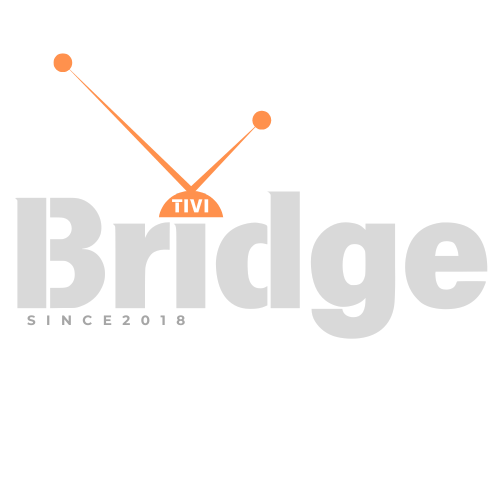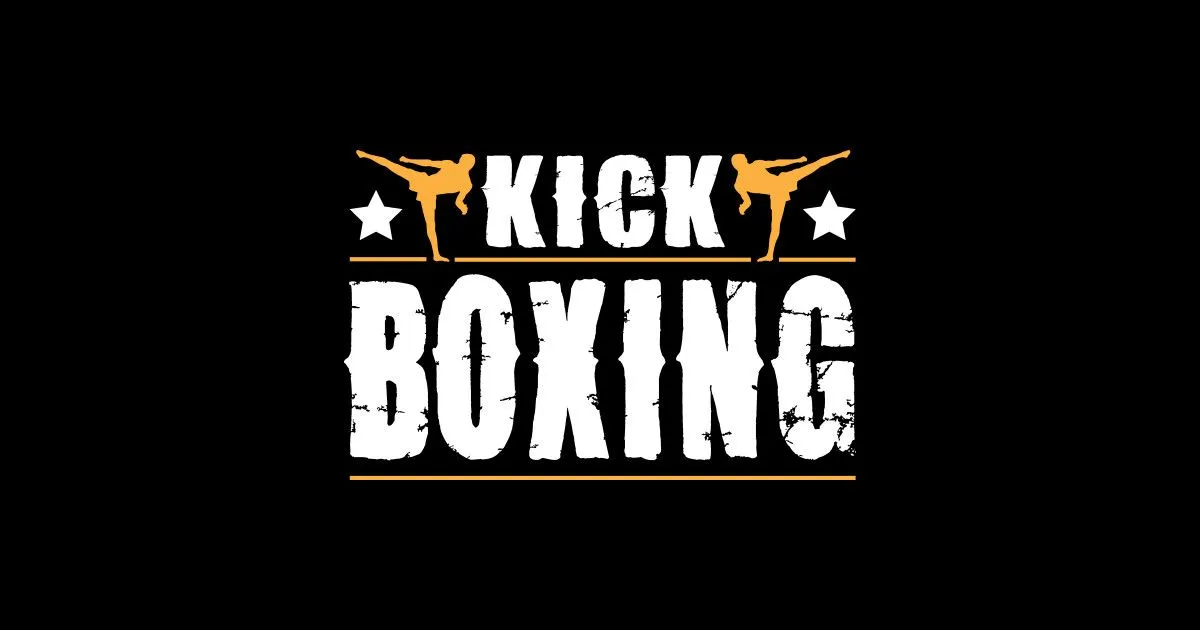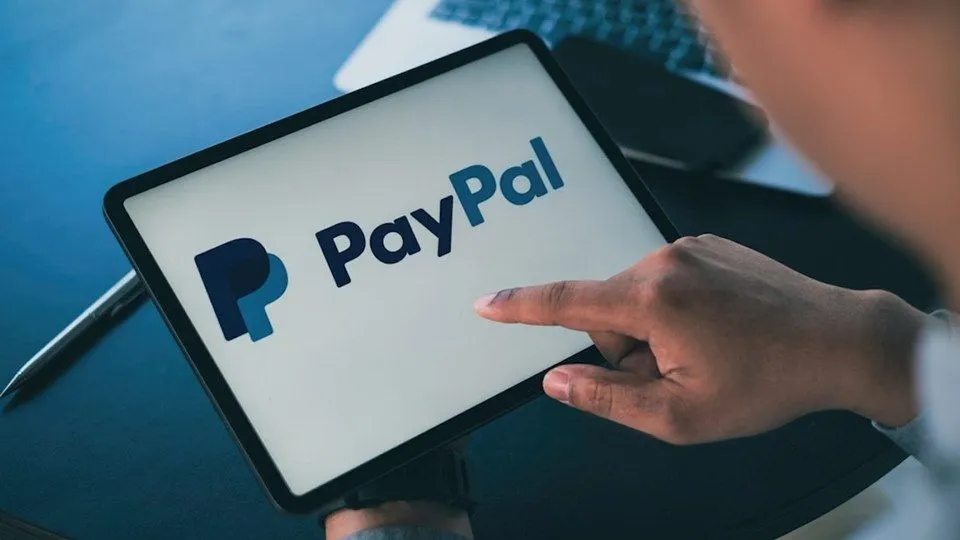Catch-up IPTV
What is Catch-up IPTV? Have you ever missed your favorite show because you were stuck in traffic or forgot to set your DVR? If you’re nodding your head right now, you’re not alone. Millions of viewers worldwide face this frustrating dilemma daily. But what if I told you there’s a revolutionary solution that’s transforming how we consume television content? Enter catch-up IPTV – a game-changing feature that’s reshaping the streaming landscape and putting you back in control of your viewing schedule.
Catch-up IPTV represents one of the most significant innovations in modern television technology, allowing viewers to access previously aired content on-demand without the limitations of traditional broadcasting schedules. This powerful feature of IPTV services has become increasingly popular among cord-cutters and streaming enthusiasts who demand flexibility and convenience in their entertainment consumption.
In this comprehensive guide, we’ll explore everything you need to know about catch-up functionality, from its technical foundations to practical applications, helping you understand why this feature of IPTV is becoming essential for modern viewers.
Understanding IPTV: The Foundation of Modern Streaming
Before diving deep into catch-up capabilities, it’s crucial to understand what IPTV actually means. Internet Protocol Television (IPTV) is a digital television broadcasting protocol that delivers television content through internet networks rather than traditional terrestrial, satellite, or cable formats.
Unlike conventional broadcasting methods that follow rigid schedules, IPTV offers unprecedented flexibility through three primary service types:
- Live Television: Real-time broadcasting of channels as they air
- Video on Demand (VOD): Access to pre-recorded content libraries
- Time-shifted Media: The foundation for catch-up functionality
The beauty of IPTV lies in its ability to combine these services seamlessly, creating a comprehensive entertainment ecosystem that adapts to your lifestyle rather than forcing you to adapt to broadcasting schedules.
What Exactly is Catch-up IPTV?
Catch-up IPTV is a sophisticated feature of IPTV services that allows viewers to access previously aired television programs for a specified period after their original broadcast time. Think of it as a digital time machine for television content – you can literally “catch up” on shows you missed, hence the name.
This innovative streaming TV technology works by automatically recording and storing broadcast content on servers, making it available for on-demand viewing. Most catch-up services offer content availability ranging from 7 to 30 days after the original broadcast, though some premium services extend this period even further.
Key Components of Catch-up Technology
The technical infrastructure behind catch-up IPTV involves several sophisticated components:
Content Storage Systems: High-capacity servers that automatically record and store broadcast content from multiple channels simultaneously.
Metadata Management: Advanced systems that organize content with detailed information including broadcast times, episode numbers, and program descriptions.
User Interface Integration: Seamless interfaces that allow viewers to browse and select catch-up content alongside live programming.
Streaming Optimization: Technology that ensures smooth playback of stored content across various devices and internet connection speeds.
The Evolution of Television Consumption
The emergence of catch-up IPTV represents a fundamental shift in how we consume television content. Traditional linear television required viewers to be present at specific times to watch their favorite programs. This rigid scheduling often conflicted with busy lifestyles, leading to missed episodes and viewer frustration.
Streaming TV platforms initially addressed this issue through VOD libraries, but these often lacked current programming and required significant content licensing investments. Catch-up functionality bridges this gap by providing access to recently aired content without the extensive licensing complications associated with traditional VOD services.
The Consumer Behavior Revolution
Modern viewers exhibit dramatically different consumption patterns compared to previous generations:
- Binge-watching: Consuming multiple episodes in single sessions
- Time-shifting: Watching content at personally convenient times
- Multi-device viewing: Switching between televisions, tablets, and smartphones
- Social viewing: Discussing content on social media platforms
Catch-up IPTV perfectly aligns with these evolving preferences, offering the flexibility that modern audiences demand while maintaining access to current programming that keeps viewers engaged in cultural conversations.
Technical Architecture Behind Catch-up Services
Understanding the technical foundation of catch-up IPTV helps appreciate the complexity and sophistication of this feature of IPTV systems. The architecture involves multiple layers of technology working in harmony to deliver seamless user experiences.
Content Acquisition and Processing
The process begins with content acquisition, where IPTV systems receive live broadcast feeds from various sources. These feeds undergo real-time processing that includes:
Digital Signal Processing: Converting analog signals to digital formats suitable for internet transmission
Encoding Optimization: Compressing content using advanced codecs to balance quality and bandwidth requirements
Metadata Extraction: Automatically generating program information, descriptions, and categorization data
Quality Assurance: Monitoring signal integrity and implementing error correction protocols
Storage Infrastructure
Catch-up services require massive storage capabilities to maintain content libraries across multiple channels and time periods. Modern implementations utilize:
Distributed Storage Networks: Geographically dispersed servers that improve access speeds and provide redundancy
Intelligent Caching: Systems that predict popular content and optimize storage allocation accordingly
Automated Lifecycle Management: Processes that manage content retention periods and deletion schedules
Scalable Architecture: Infrastructure that can expand storage capacity based on service growth and demand
Looking for Premium Channels, Sports, and 4K Streaming?
Don’t miss out on these top-rated IPTV services – all at unbeatable prices!
🔥 TiviBridge – Ideal for sports lovers & international content
🎬 Iptvbridge – Perfect for live TV, movies & entertainment
💰 TiviPlanet – Best value for budget-conscious streamers
🚀 Start Your IPTV Business Today!
Get instant access to a powerful Reseller IPTV Panel with competitive pricing, advanced features, and 24/7 support. Join TiviBridge and grow your own IPTV empire with ease!
👉 Start your FREE trial now and elevate your viewing experience with seamless, high-quality streaming!
Benefits of Catch-up IPTV for Modern Viewers
The advantages of catch-up functionality extend far beyond simple convenience, offering transformative benefits that enhance the entire television viewing experience.
Ultimate Viewing Flexibility
Catch-up IPTV eliminates the anxiety of missing important programs. Whether you’re dealing with work commitments, family obligations, or simply forgot about a show, catch-up services ensure you never lose access to content you care about.
This flexibility extends to viewing patterns as well. You can start watching a program live, pause it for dinner, and resume later without losing your place. Alternatively, you can choose to watch the entire program from the beginning using the catch-up feature, even if it’s currently airing.
Enhanced Content Discovery
Many catch-up services include sophisticated recommendation engines that analyze your viewing history and suggest relevant content you might have missed. This feature helps viewers discover new programs and ensures they stay connected with content that matches their interests.
Cost-Effective Entertainment Solution
Compared to traditional cable packages with premium DVR services, IPTV solutions with catch-up functionality often provide superior value. You gain access to more content with greater flexibility at competitive pricing, making it an attractive option for budget-conscious consumers.
Multi-Device Accessibility
Modern catch-up IPTV services work seamlessly across various devices, allowing you to start watching on your television, continue on your tablet during commute, and finish on your smartphone. This cross-device compatibility ensures your entertainment follows you wherever you go.
IPTV Lite: Streamlined Catch-up Solutions
For users seeking essential catch-up functionality without complex features, IPTV Lite solutions offer streamlined alternatives that focus on core capabilities while maintaining affordability and ease of use.
Characteristics of IPTV Lite Services
IPTV Lite platforms typically include:
- Essential Channel Packages: Curated selections of popular channels rather than comprehensive lineups
- Simplified User Interfaces: Intuitive designs that prioritize ease of navigation
- Basic Catch-up Windows: Shorter retention periods (typically 7-14 days) for stored content
- Optimized Performance: Lightweight applications that work well on various devices and internet speeds
Target Audience for Lite Solutions
IPTV Lite services appeal to several specific user groups:
Casual Viewers: Users who watch television occasionally and don’t require extensive channel selections
Budget-Conscious Consumers: Individuals seeking affordable alternatives to traditional cable services
Tech-Hesitant Users: Viewers who prefer simple, straightforward interfaces without complex features
Mobile-First Audiences: Users who primarily consume content on smartphones and tablets
Implementation Across Different Platforms
Catch-up IPTV services have been implemented across various platforms, each offering unique advantages and targeting different user preferences.
Smart TV Integration
Modern smart televisions increasingly include built-in IPTV capabilities with catch-up functionality. These implementations offer:
Native Performance: Optimized playback that takes full advantage of television hardware capabilities
Seamless Interface Integration: Catch-up content appears alongside live programming in unified program guides
Remote Control Optimization: Navigation designed specifically for television remote controls
Large Screen Experience: Content presentation optimized for living room viewing environments
Mobile Applications
Smartphone and tablet applications represent the fastest-growing segment of catch-up IPTV consumption:
Portability: Access to content anywhere with internet connectivity
Personalized Recommendations: AI-powered suggestions based on individual viewing patterns
Social Integration: Features that enable content sharing and discussion on social media platforms
Offline Downloading: Some services allow temporary content downloads for viewing without internet access
Web-Based Platforms
Browser-based catch-up services offer universal accessibility without requiring specific applications:
Cross-Platform Compatibility: Access from any device with a modern web browser
Instant Access: No installation requirements or device-specific considerations
Regular Updates: Automatic feature improvements without user intervention
Bookmark Integration: Easy access to favorite content through browser bookmarking systems
Content Categories and Availability
Catch-up IPTV services typically organize content into various categories to enhance user experience and content discovery.
News and Current Affairs
News programming represents one of the most popular catch-up categories, allowing viewers to stay informed even when unable to watch live broadcasts:
- Breaking News Coverage: Access to important news events and developments
- Analysis Programs: In-depth discussion shows and expert commentary
- International Perspectives: Global news coverage from various sources and viewpoints
- Local News: Community-specific content relevant to viewer locations
Entertainment Programming
Entertainment content forms the backbone of most catch-up services:
Drama Series: Popular television dramas with complex storylines that benefit from sequential viewing
Comedy Shows: Stand-up specials, sitcoms, and variety programs that provide entertainment value
Reality Television: Competition shows, lifestyle programs, and documentary series
Talk Shows: Celebrity interviews, discussion programs, and late-night entertainment
Sports Coverage
Sports content presents unique challenges and opportunities for catch-up services:
Game Replays: Complete coverage of sporting events for viewers who missed live broadcasts
Highlight Packages: Condensed versions focusing on key moments and scoring plays
Analysis Shows: Expert commentary and post-game discussion programs
Magazine Shows: Weekly sports news and feature programming
Educational and Documentary Content
Catch-up services increasingly include educational programming that benefits from on-demand accessibility:
Documentary Series: In-depth explorations of various topics and subjects
Educational Programs: Content designed for learning and skill development
Science and Technology: Programming covering latest developments and innovations
Historical Content: Programs exploring past events and cultural phenomena
Technical Considerations for Optimal Performance
Successful catch-up IPTV implementation requires attention to various technical factors that impact user experience and service reliability.
Internet Bandwidth Requirements
Streaming TV services, including catch-up functionality, have specific bandwidth requirements for optimal performance:
Standard Definition (SD): Minimum 3-5 Mbps for smooth playback without buffering
High Definition (HD): 8-10 Mbps recommended for consistent quality experience
Ultra High Definition (4K): 25+ Mbps required for premium viewing experiences
Multiple Simultaneous Streams: Additional bandwidth needed for households with multiple concurrent viewers
Device Compatibility Factors
Modern catch-up IPTV services must support diverse device ecosystems:
Operating System Support: Compatibility across iOS, Android, Windows, macOS, and Linux platforms
Browser Requirements: Support for Chrome, Firefox, Safari, and Edge browsers
Hardware Specifications: Minimum processor and memory requirements for smooth operation
Network Connectivity: Both Wi-Fi and cellular network optimization
Quality of Service (QoS) Management
Service providers implement various QoS measures to ensure consistent catch-up performance:
Adaptive Bitrate Streaming: Automatic quality adjustment based on network conditions
Content Delivery Networks (CDNs): Geographically distributed servers that reduce latency and improve performance
Error Correction Protocols: Systems that maintain stream quality despite network interruptions
Buffer Management: Intelligent pre-loading that prevents playback interruptions
Comparison with Traditional DVR Services
Understanding how catch-up IPTV compares to traditional Digital Video Recorder (DVR) services helps illustrate its advantages and potential limitations.
Storage Limitations
Traditional DVR services require physical storage devices with finite capacity, often leading to difficult decisions about which content to record and retain. Catch-up IPTV eliminates these concerns by providing cloud-based storage that doesn’t compete with other recorded content.
Programming Conflicts
DVR systems with limited tuners sometimes face scheduling conflicts when multiple programs air simultaneously. Catch-up services avoid this issue entirely by automatically storing all broadcast content regardless of viewer recording requests.
Maintenance and Reliability
Physical DVR equipment requires maintenance, can experience hardware failures, and may need periodic replacement. Catch-up infrastructure exists entirely in the cloud, eliminating these concerns for end users.
Cost Considerations
While DVR services often require additional monthly fees and equipment rentals, catch-up functionality is typically included as a standard feature of IPTV packages, providing better overall value.
Global Market Trends and Adoption
The catch-up IPTV market has experienced tremendous growth worldwide, driven by changing consumer preferences and technological advances.
Regional Adoption Patterns
Different regions show varying adoption rates based on infrastructure development and consumer preferences:
North America: High adoption rates driven by cord-cutting trends and robust internet infrastructure
Europe: Strong growth supported by regulatory frameworks that encourage competition
Asia-Pacific: Rapid expansion led by mobile-first consumption patterns and increasing internet penetration
Latin America: Growing interest supported by improving internet infrastructure and competitive pricing
Market Size and Growth Projections
Industry analysts project continued strong growth in the catch-up IPTV sector, with market research indicating significant expansion opportunities across various demographic segments and geographic regions.
Competitive Landscape
The catch-up functionality has become a standard expectation rather than a premium feature, with service providers competing on content quality, user experience, and additional features rather than basic catch-up availability.
Security and Privacy Considerations
Catch-up IPTV services handle significant amounts of user data and content, making security and privacy paramount concerns.
Content Protection Measures
Service providers implement various measures to protect copyrighted content:
Digital Rights Management (DRM): Encryption systems that prevent unauthorized content access and distribution
Geo-blocking: Location-based restrictions that ensure content availability complies with licensing agreements
User Authentication: Secure login systems that verify subscriber identity and prevent unauthorized access
Watermarking: Digital fingerprints that help track and prevent content piracy
Privacy Protection Protocols
Modern catch-up services implement comprehensive privacy protections:
Data Encryption: Secure transmission of user information and viewing data
Anonymization Practices: Removal of personally identifiable information from analytics data
Consent Management: Clear disclosure of data collection practices and user control options
Compliance Standards: Adherence to regional privacy regulations like GDPR and CCPA
Future Innovations in Catch-up Technology
The catch-up IPTV landscape continues evolving with emerging technologies that promise to enhance user experiences and expand functionality.
Artificial Intelligence Integration
AI technologies are increasingly integrated into catch-up services:
Smart Recommendations: Machine learning algorithms that predict content preferences with increasing accuracy
Automated Content Curation: AI systems that create personalized content collections based on viewing patterns
Voice Control Integration: Natural language interfaces that enable hands-free content discovery and control
Predictive Caching: Systems that anticipate user preferences and pre-load relevant content
Enhanced Personalization Features
Future catch-up services will offer unprecedented personalization:
Individual User Profiles: Separate recommendations and catch-up libraries for different household members
Mood-Based Suggestions: Content recommendations based on time of day, weather, and user behavior patterns
Social Integration: Features that incorporate friend recommendations and viewing activity
Cross-Platform Synchronization: Seamless experience continuation across multiple devices and platforms
Interactive Content Experiences
Emerging technologies enable new forms of interactive catch-up content:
Choose-Your-Adventure Programming: Viewer decisions that influence story outcomes
Multi-Angle Viewing: Sports and event coverage with multiple camera perspective options
Real-Time Commentary: Social features that enable viewer discussions during catch-up viewing
Augmented Reality Integration: Enhanced viewing experiences with additional information overlays
Troubleshooting Common Issues
Even the most sophisticated catch-up IPTV services occasionally experience issues that users should know how to address.
Connectivity Problems
Network-related issues represent the most common catch-up service problems:
Slow Loading Times: Often resolved by checking internet speed and closing unnecessary applications
Buffering Issues: Usually indicate insufficient bandwidth or network congestion
Connection Timeouts: May require router resets or contact with internet service providers
Quality Degradation: Often temporary and resolves automatically through adaptive streaming
Content Access Issues
Sometimes specific programs may be unavailable in catch-up libraries:
Licensing Restrictions: Certain content may not be licensed for catch-up distribution
Geographic Limitations: Content availability may vary based on viewer location
Retention Period Expiration: Programs may no longer be available after specified time periods
Technical Errors: Temporary issues that typically resolve quickly
User Interface Problems
Interface issues can sometimes impede catch-up service usage:
Search Function Problems: Usually resolved by clearing browser cache or updating applications
Navigation Difficulties: May require user education or interface customization
Login Issues: Often resolved through password resets or account verification
Synchronization Problems: Cross-device issues that may require manual refresh
Industry Standards and Regulations
The catch-up IPTV industry operates within various regulatory frameworks that ensure fair competition and consumer protection.
Content Licensing Requirements
Catch-up services must navigate complex licensing landscapes:
Broadcast Rights: Agreements with content creators and distributors for catch-up distribution
Geographic Restrictions: Compliance with territorial licensing limitations
Retention Periods: Adherence to agreed-upon content availability windows
Revenue Sharing: Fair compensation structures for content creators and rights holders
Consumer Protection Standards
Regulatory bodies increasingly focus on IPTV service quality and consumer rights:
Service Level Agreements: Minimum performance standards for catch-up functionality
Transparency Requirements: Clear disclosure of service features, limitations, and pricing
Complaint Resolution Processes: Standardized procedures for addressing user concerns
Accessibility Standards: Requirements for serving users with disabilities
Cost Analysis and Value Proposition
Understanding the economic aspects of catch-up IPTV helps consumers make informed decisions about service adoption.
Pricing Models
Catch-up IPTV services typically employ several pricing strategies:
Subscription-Based Models: Monthly or annual fees that include catch-up functionality
Tiered Service Levels: Different catch-up retention periods based on subscription levels
Ad-Supported Options: Lower-cost services that include advertising within catch-up content
Premium Add-Ons: Enhanced features like extended retention periods or exclusive content
Value Comparison
When comparing catch-up services to alternatives, consider:
Traditional Cable Packages: Higher costs with less flexibility and limited catch-up options
Standalone DVR Services: Additional equipment costs and maintenance requirements
Multiple Streaming Subscriptions: Cumulative costs that often exceed comprehensive IPTV packages
Convenience Factors: Time savings and stress reduction that provide intangible value
Best Practices for Maximizing Catch-up Benefits
Getting the most value from catch-up IPTV services requires understanding how to use features effectively.
Content Organization Strategies
Effective content management enhances the catch-up experience:
Favorites Lists: Creating collections of preferred channels and programs
Watchlist Management: Tracking programs you plan to watch during catch-up periods
Priority Settings: Focusing on time-sensitive content that may expire from catch-up libraries
Family Coordination: Managing different family member preferences and viewing schedules
Viewing Optimization Techniques
Maximizing catch-up service performance:
Peak Hour Avoidance: Watching during off-peak times when network congestion is lower
Device Selection: Choosing appropriate devices based on content type and viewing environment
Quality Settings: Adjusting stream quality based on internet connection capabilities
Network Optimization: Ensuring home network configuration supports optimal streaming performance
Frequently Asked Questions
What is the typical retention period for catch-up content?
Most catch-up IPTV services offer content retention periods ranging from 7 to 30 days, though this varies by service provider and content type. Premium services may offer extended retention periods, while some news and current affairs programming might be available for shorter periods due to licensing restrictions.
Can I download catch-up content for offline viewing?
Download availability depends on the specific IPTV service and content licensing agreements. Many services offer temporary downloads that expire after certain periods, while others focus exclusively on streaming access. Always check your service provider’s terms and conditions for download policies.
How much internet bandwidth do I need for smooth catch-up viewing?
For optimal catch-up IPTV performance, we recommend minimum speeds of 5 Mbps for standard definition, 10 Mbps for high definition, and 25+ Mbps for 4K content. Households with multiple simultaneous users should calculate bandwidth requirements accordingly and consider higher-speed internet packages.
Is catch-up content available immediately after broadcast?
Most catch-up systems make content available within minutes of broadcast completion, though some services may experience slight delays due to processing requirements. Live programs typically become available in catch-up libraries immediately after their scheduled end times.
Can I access catch-up content while traveling internationally?
International access depends on content licensing agreements and service provider policies. Many services implement geo-blocking that restricts access based on location. Some providers offer international access packages, while others maintain strict geographic limitations.
Do catch-up services include advertisements?
Advertisement inclusion varies by service model and content source. Some catch-up services mirror original broadcast advertising, while others may insert different advertisements or offer ad-free premium tiers. Free or low-cost services typically include more advertising than premium subscriptions.
How reliable are catch-up services compared to traditional DVR?
Catch-up IPTV services typically offer superior reliability compared to traditional DVR systems because they eliminate hardware failure risks and storage limitations. However, they depend on internet connectivity and service provider infrastructure, which can occasionally experience issues.
Can multiple family members use catch-up features simultaneously?
Most IPTV services support multiple simultaneous streams, allowing different family members to access catch-up content concurrently. Stream limits vary by service plan, with premium packages typically offering more simultaneous connections than basic subscriptions.
Conclusion: Embracing the Future of Television
Catch-up IPTV represents more than just a convenient feature of IPTV services – it’s a fundamental transformation in how we relationship with television content. By eliminating the constraints of traditional broadcasting schedules, catch-up functionality empowers viewers to take control of their entertainment experience in ways that were unimaginable just a few years ago.
The benefits extend far beyond simple convenience. Catch-up services reduce stress associated with missing favorite programs, enable better work-life balance by providing viewing flexibility, and often deliver superior value compared to traditional cable packages with limited DVR capabilities. For families with diverse viewing preferences and busy schedules, catch-up IPTV has become an indispensable tool for maintaining connection with preferred content.
As technology continues advancing, we can expect catch-up services to become even more sophisticated, incorporating artificial intelligence, enhanced personalization, and interactive features that further blur the lines between traditional television and on-demand entertainment. The integration of IPTV Lite solutions ensures that these benefits remain accessible to users with varying technical comfort levels and budget considerations.
The streaming TV landscape will undoubtedly continue evolving, but catch-up functionality has established itself as an essential component of modern television services. Whether you’re a busy professional who frequently misses live broadcasts, a family managing multiple viewing preferences, or simply someone who values flexibility in entertainment choices, catch-up IPTV offers compelling solutions that traditional broadcasting cannot match.
Don’t get left behind in the television revolution. Explore catch-up IPTV options available in your area, compare features and pricing with your current television service, and discover how this powerful technology can transform your viewing experience. The future of television is here – and it’s waiting for you to catch up.
Ready to experience the freedom of catch-up IPTV? Share your thoughts about this technology in the comments below, or explore our related resources to learn more about choosing the perfect IPTV service for your needs. Your entertainment schedule should work for you, not against you.











